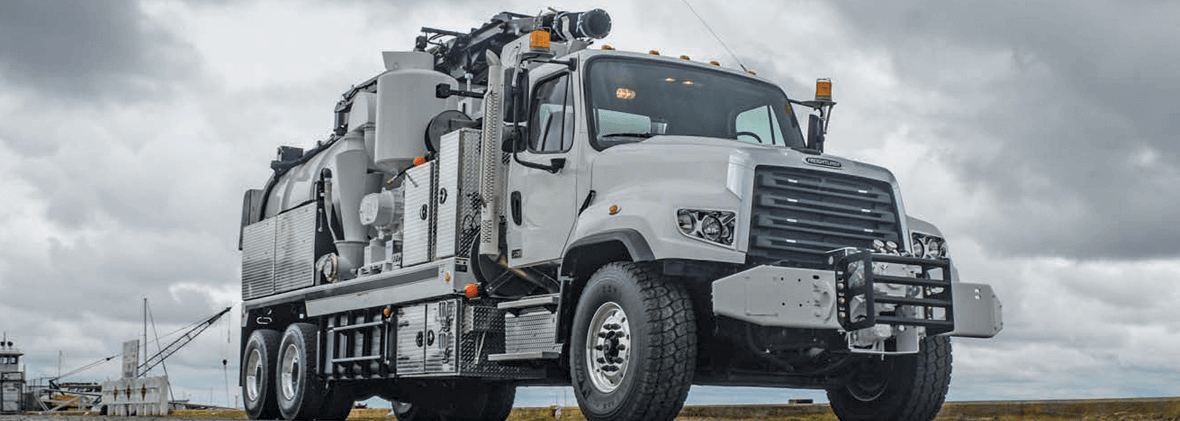
Everything You Need to Know About Vacuum Trucks
Vacuum trucks use pneumatic suction and sometime high-pressure water to excavate, clean and transport debris with precision. They’re essential for sewer maintenance, utility installation, storm cleanup and industrial applications. Here is an overview of types, applications, how these machines work, and how getting a vacuum truck from The Cat® Rental Store can benefit your project.
What Are Vacuum Trucks?
A vacuum truck mounts a debris tank and vacuum system on a roadworthy chassis. The system creates suction inside the tank to pull in soil, sludge and waste through a hose for containment and disposal. Hydro vac models add a water jet to loosen material first for safer, non-destructive digging.
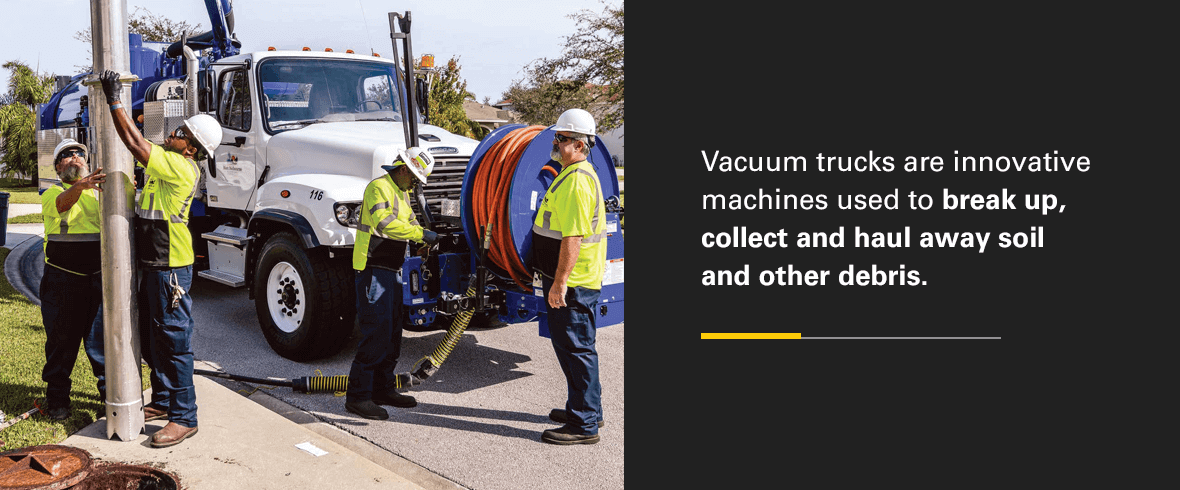
Types of Vacuum Trucks
Hydro Excavator Trucks
Hydro vacs use water to break up soil, then vacuum the slurry into the tank. They excel at sewer and septic cleaning, utility locating, potholing/daylighting, slot trenching and pole-hole digging . Some models recycle water to increase efficiency and reduce environmental impact.
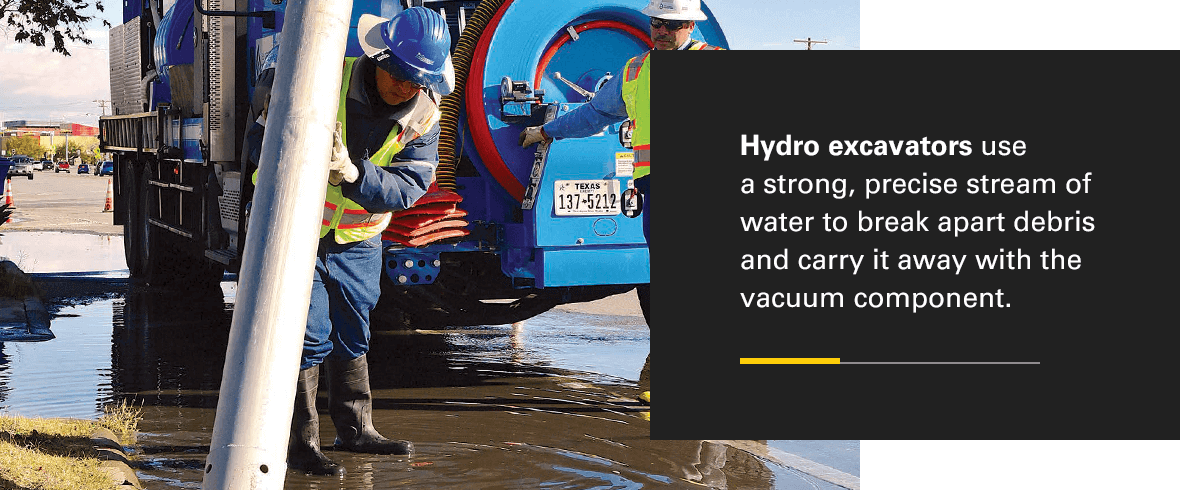
Dry Vacuum Trucks
Dry vac trucks collect loose materials — dirt, gravel, asphalt, leaves — using suction only. They’re common in municipal street cleaning and post-construction cleanup. Despite the “dry” label, many models can also handle slurries and liquids.
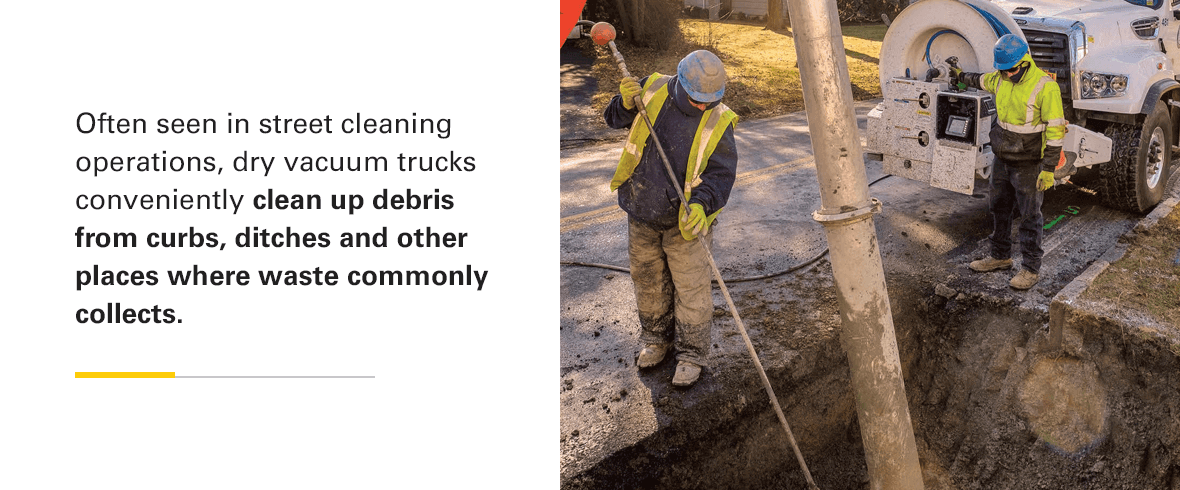
What Are Vacuum Trucks Used For?
Vacuum trucks are used across construction, utilities, municipalities and environmental services.
Typical applications include:
Sewer and septic maintenance: Break down sludge, clear blockages and transport waste to treatment facilities.
Underground installations and repairs: Dig accurately near fragile utilities for plumbing, wiring and water main repairs.
Slot trenching and foundations: Create narrow, uniform trenches for pipes, cables and footings with minimal disturbance.
Municipal and industrial cleanup: Restore roads, facilities and plants after storms or shutdowns.
Debris removal: Clear construction waste and storm debris efficiently with targeted suction.
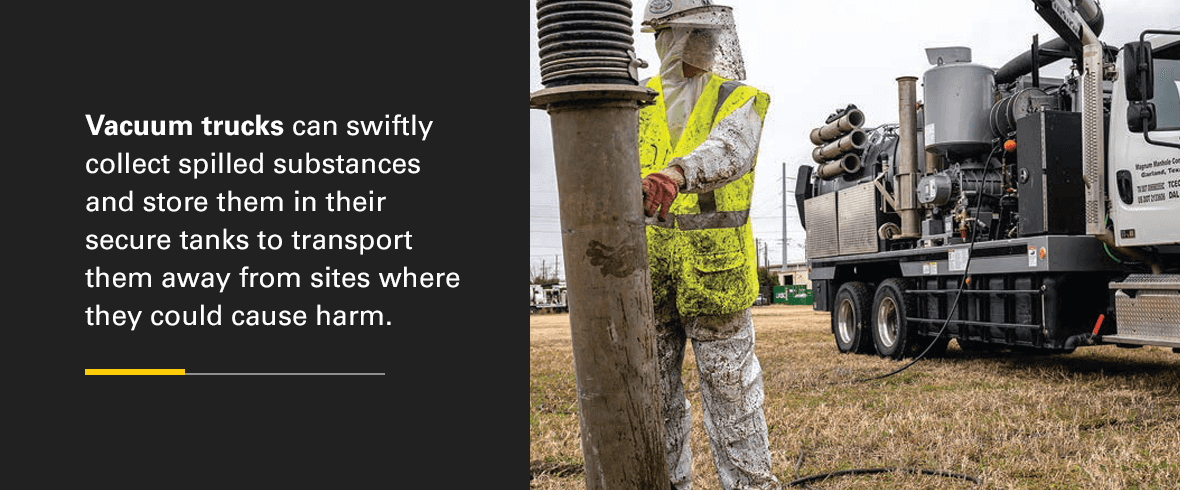
How Do Vacuum Trucks Work?
Industrial vacuums create a pressure differential using a pump or fan to evacuate air from the tank. When valves open, outside pressure pushes material into the hose and tank. Hydro vacs add a hot- or cold-water jet to cut soil before suction. Proper maintenance of tanks, valves and hoses is essential for safe operation.
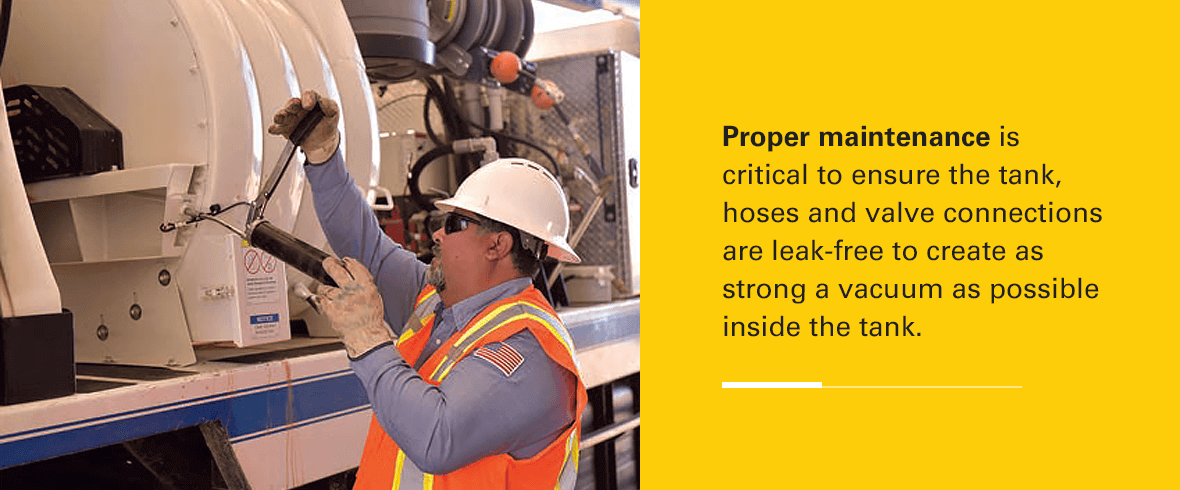
Why Choose Vacuum Trucks?
- They’re accurate: Non-destructive around pipes and cables; precise exposure of utilities.
- They’re efficient: Faster than manual digging, especially in tolerance zones; broad industry benefits.
- They’re cost-effective: Reduce labor and damage risks; rentals can fill fleet gaps when needed.
- All-weather: Hot-water systems allow work through frozen ground.
- Cleaner: Less dust and fewer emissions than many mechanical alternatives; no harsh digging chemicals.
- Reach: Long hoses enable remote or confined-area work.
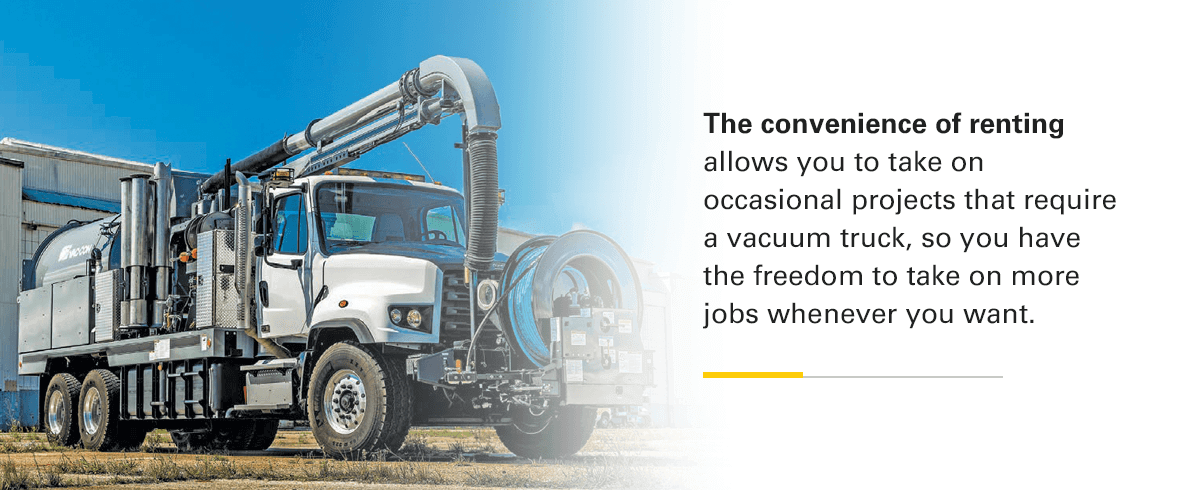
When Should You Rent a Vacuum Truck?
Renting is ideal when you need a short-term solution, a backup during repairs, or access to specific capabilities without the cost of ownership. Browse vacuum truck rentals and related solutions, find your nearest location and request a quick quote to lock in availability.
Find The Cat Rental Store Near You